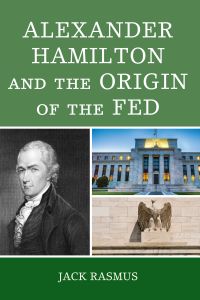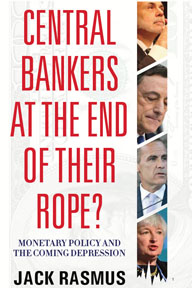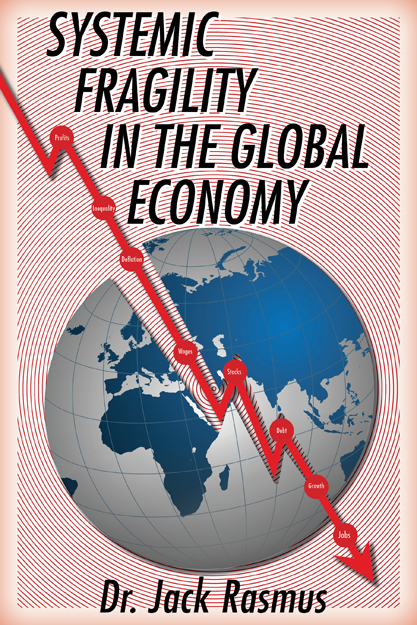MY ANALYSIS OF THURSDAY’S US HOUSE (Boehner’s Boys) NO VOTE ON ‘PLAN B’–AS WELL AS AN ECONOMIC EXPLANATION WHY THE ‘FISCAL CLIFF’, SHOULD IT EVEN HAPPEN, IS JUST AN ECONOMIC ‘SPEED BUMP’, THE IMPACT OF WHICH IS GROSSLY OVERESTIMATED
Today, December 20, 2012 the US House of Representatives—aka ‘Boehner’s Boy’s—decided to not vote on the House Speaker’s ‘Plan B’ to continue all the Bush tax cuts except for token reductions on the millionaires and billionaires. The move is being hyped by the press as bringing the US economy to the edge of the so-called Fiscal Cliff. Should the Teaparty radicals who have been running the U.S. House since 2010 continue with their once-again brinkmanship through January 1, 2013, the US economy will descend over the cliff into recession once again. According to the Congressional Budget Office, the result will be an immediate 4% decline in GDP. However, this view is wrong for two reasons:
First, the House refusal to vote Plan B today, December 20, does not represent a breakdown of negotiations. It is just a tactical move designed to pass the hot potato to Obama and the Senate while they, Boehner’s Boys, break for the Xmas holiday. Why vote on Plan B now when they can do so later, after Xmas, and before the January 1 (non) deadline date? The Teapublicans need to look tough during negotiations, and appear as if they were forced into an agreement at the last moment; and this is not the last moment. Nor is January 1.
But it is increasingly clear that Corporate CEOs and public opinion is not willing to go along with a repeat of Teapublican tactics of 2011. As this writer has noted previously, CEOs want an agreement, with top income tax rates and/or revenue raised, in order to later get the big corporate tax cut Obama has promised them, reducing the top corporate tax rate from 35% to 28% later this year. They can’t get it without an agreement on the ‘fiscal cliff’, and that includes tax hikes on the personal income tax. Similarly, public opinion is overwhelmingly identifying the House Republicans as the main problem preventing a settlement. So the Boehner-Teapublican tactic to postpone a Plan B vote is likely to backfire.
Watch for a major decline in the US stock market on Friday, December 21, perhaps as much as 500 points at the market opening, with global markets to follow similarly. Watch for Corporate CEOs to up the pressure in coming week as well. The Capitalists will be sending the House ideologues a message, and Boehner will eventually bring them to heel. What postponing Plan B represents is the House radicals are refusing to appear as if they are willing to negotiate a deal; they prefer to be ‘forced’ into having to accept one. They must have a crisis before they can agree to anything.
But the economic side of the fiscal cliff is also not what it seems. Should no agreement be reached by January 1—or anytime after for that matter—there will be no economic Armageddon. There will be no renewed recession in the first quarter of 2013—at least due to the fiscal cliff. The ‘fiscal cliff’ is no cliff at all, and in reality better described as an economic speed bump derived from the Bush tax cuts. Here’s why:
The Congressional Budget Office (CBO) in its recent November 2012 report on the economic consequences if the tax cuts are allowed to expire, and spending cuts go into effect, on January 1, 2013 estimates that $503 billion will be taken out of the economy starting January 1. Another $682 billion will follow in 2014. Of the $503 billion, about $420 billion represents the expiration of tax cuts—about $80 billion in the payroll tax increase and the rest representing Bush tax cuts. Of the $85 billion or so in spending cuts, a mere $24 billion is defense spending. The rest is social program spending.
The $85 billion in spending cuts won’t hit the economy all at once in the first three months. So let’s say $25 billion will in the first quarter? The US gross domestic product, GDP, in 2013 will exceed $16.5 trillion next year easily. Conservatively estimating $4 trillion GDP in the first quarter, the spending cuts will mean a 0.6 of 1% decline in GDP. Hardly a recession due to the spending cuts.
OK. That still leaves $420 billion in tax increases that will take effect, about $80 billion in payroll hikes and the rest Bush tax cuts expiring. But as nearly all economists will admit, taxes have less an effect on the economy and GDP than spending does. In terms of an attempt to stimulate GDP, a $100 billion in tax cuts has less impact than does a $100 billion in spending increase. The opposite is also true: a $100 billion tax hike will slow the economy less than a $100 billion spending cut. It’s what economists call the ‘multiplier effect’.
Since 2008 the ‘multiplier effect’ has had significantly less impact on stimulating the economy, whether tax or spending multiplier. This has been due to the deep and rapid contraction of the economy in 2008-09, the historic weak recovery ever since, the massive unemployment, the record remaining debt overhang levels, and stagnant disposable income growth for more than 100 million households. Tax multipliers have been especially weak. Some estimates are that in recent years a tax cut of $1 has generated only a spending of that tax cut amounting to 35 cents. The multipliers are thus a fraction, not even a true multiple.
What that means in turn is raising taxes will have an equivalent weak, fractional impact on slowing the economy in 2013 just as cutting taxes has had very little effect on stimulating the economy from 2008 to 2012. The tax cuts of 2008-12, and especially the tax cuts for businesses and investors, have been mostly ‘hoarded’ and not invested. That’s why Corporate America still sits on $2 trillion in cash today and is not investing it. Business investment has been declining for months throughout 2012. Instead, corporations and investors have been, and now are increasingly, using the Bush and other tax cuts to buyback stock, pay special dividends to shareholders, invest offshore or in financial securities, etc. Stock buyback volumes this year alone will set a record of more than $400 billion in the US.
The tax cuts since 2008 did not produce much in the way of investment or jobs in the US; so ending them will not likely have all that much impact on the downside as well. If $340 billion of the $420 billion in tax hikes take effect after January 1, 2013, and if the .35 multiplier continues today, then we’re talking about $110 billion hit to the economy in the tax hikes. Over four quarters, remember. So that means about $30 billion taken out of the economy in the first quarter—or about roughly the same impact as the above $25 billion spending cut in the first quarter 2013.
That leaves only the $85 billion or so reduction from the payroll tax returning to its prior 6.2%. That impact is on the working-middle classes, who have not been ‘hoarding’ their tax cuts to the extent corporations and investors have. So one can assume the ‘multiplier’ is higher than .35 cents on the dollar. But it’s still a tax multiplier and not a spending multiplier, so it is not as if spending were cut one dollar. Generously, one can assume the payroll tax multiplier is $1 dollar for every $1 dollar tax hike. For the first three months of 2013, the impact will therefore be a $21 billion negative hit to GDP in the first quarter.
What this all means is that the true negative impact on the US economy during the first quarter from a ‘fiscal cliff’ taking effect, is no more than $75 billion on an economy that will be more than $4 trillion! A more accurate consideration of multiplier effects means the total impact on GDP is about a third of what the CBO has estimated for the first quarter of 2013. Moreover, once a deal is reached by March 27, 2013 at latest in the ‘fiscal cliff’ negotiations, most of that could be restored retroactively. What might be lost in the first quarter would mostly be restored in the second.
Even discounting an eventual deal and restoration of income to GDP in the first quarter, a $75 billion negative impact on GDP from going over a ‘fiscal cliff’ is negligible. There is no such thing as the ‘fiscal cliff’, in other words. There is a ‘Tax Cut Speed Bump’ at most.
It is far more likely that whatever deal is eventually negotiated between Obama and the House of Representatives’ ‘Boehner Boys’ will have a far more negative impact on the economy than the fiscal cliff of mostly Bush tax cuts expiration could ever have.
Not to mention the even more fundamental forces that constitute a drag on the US economy itself, from the rapid slowing of global manufacturing, trade and exports now continuing, to the refusal by big corporations to invest in the US, to the US banks refusing to lend to small businesses, to the steady decline in household consumption income for the 100 million households that constitute the middle and working class, to the growing likelihood of banking crises in Europe, growing problems in Japan’s economy, and so forth. The latter are the real threat to the US economy, not the fiscal cliff. What’s coming as a solution to the ‘fiscal cliff’, or what is best described as ‘Austerity American Style’ in 2013, is also (ironically) more a threat to the economy than the fiscal cliff. That is, the solution will prove decidedly worse than the problem itself.
In conclusion, there is no ‘fiscal cliff’ in reality—just a third derivative negative bump to the US economy in the worst case scenario.
So why all the media and political hype about the fiscal cliff? That’s how you get everyone to buy ‘Austerity American Style’ and convince them—as bad as it is—Austerity is better than the fiscal cliff that might have happened. That’s the only way they can cut social security, medicare, Medicaid, education, and all the rest $4 for every $1 they hike taxes on the wealthy and their corporations. That’s the only way they can clear the deck for historic cuts in corporate income taxes and a total pro-business revision of the entire tax code that is planned for later in 2013.
So politically there will eventually be no ‘fiscal cliff’. A deal will happen, after all the tough posturing is concluded. Economically there really is no ‘cliff’ just an economic speed bump, even should we go over it. But we won’t do that either. So watch the game play out, and then hold onto your wallets middle class and working class America.
Jack Rasmus
copyright December 2012
Jack is the author of the book, “Obama’s Economy: Recovery for the Few”, April 2012, and host of the weekly radio show, ‘Alternative Visions’, on the progressive radio network (PRN.FM). His blog is jackrasmus.com, website: http://www.kyklosproductions.com, and twitter handle #drjackrasmus where daily updates on the fiscal cliff negotiations are available.
 Dr. Jack Rasmus @drjackrasmus
Dr. Jack Rasmus @drjackrasmus








